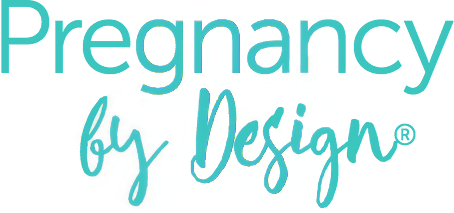Our Postpartum Recovery Course will give you all the tips and tools necessary for the many unexpected physical postpartum changes and challenges. The best part? You will learn how to heal without having to leave the comfort of your own home.
You may be here because you’re finding that while you were amazingly prepared for your pregnancy and birth, you are feeling strangely unprepared now that your beautiful baby is here. Or maybe you’re here because you had a difficult postpartum experience with your last baby and you want things to be different this time around. Whatever your reason, I want to welcome you and assure you that I am here to help you navigate your journey to healing.
You may be asking yourself “Why is this so challenging?” or “Shouldn’t I be able to figure this out?” Or if you find yourself saying things like: “It feels like we’re hitting a speed bump when we try to have sex” or “I think I have prolapse, and I’m scared because I’m only 30 and I love crossfit,” or “Do I have diastasis recti because my belly button sticks out?” or “Why am I so exhausted after climbing the stairs? Is that normal after a c-section?” If you are asking any of these questions you are in good company! Believe it or not the research shows that a large number of new moms do not feel adequately prepared for the postpartum experience.
The unfortunate reality is that this most precious time is also one of the hardest times for moms.
This is in part due to the lack of attention our culture pays to the real needs a woman has during the postpartum period – things like support and education to help with postpartum healing.
You may have envisioned your first few months home with your baby filled with cozy, long hours snuggling, long naps and maybe even intimate moments of breastfeeding.
The heartbreaking truth is that most moms navigating the 4th trimester (a.k.a. the postpartum period) will tell you that they face a LOT of obstacles. After cesarean deliveries, moms often experience pain when they roll over in bed and feel fatigued after climbing the stairs. And moms that have delivered vaginally aren’t off the hook either. Those of you that have experienced any degree of tearing know it can be painful to sit, walk, and have bowel movements. Not to mention breastfeeding, which can lead to cracked, painful nipples along with exhaustion. And what about those of you that have resorted to using pads because you’re peeing a little when you sneeze?
Perhaps you are one of the lucky ones that has experienced minimal pain so far. You’re headed to your 6 week follow-up appointment with your provider eager to learn if intercourse and exercise are safe. Most likely you’ll be unpleasantly surprised when you leave that appointment with the only advice being “yup, go for it” or “hold off for now and we’ll see you again in a few weeks”. You might wonder where should I start, will it hurt, and how much is too much?
Many of you are feeling confused about how exactly you’re supposed to get your body to “bounce back” with your partner longing for intimacy and your mind reeling with anxiety and unanswered questions. Too many moms have been in your shoes and the many voices you hear on social media aren’t helping anything. With all the pressure to be the “perfect mom” how are you supposed to have the energy to focus on self-care and healing without support and guidance?
Postpartum Recovery Online Course:
If you find yourself reading along and saying “this is me!” then this course is the perfect fit for you! We hope to answer questions you didn’t even know that you had. From how to have the perfect bowel movement to the easiest way to carry a heavy car seat, we’ve got you covered. Step-by-step guidance on how to reduce pelvic pain so you can have pain-free, enjoyable sex again, jump without incontinence, and safely return to running or your favorite fitness class. Your provider may not have assessed you for diastasis recti or taught you how to massage your cesarean scar, but we will!
What Exactly Does This Course Include:
No two mamas are exactly alike and yet this course is perfect for each of you! How can this be? This course is broken up into 10 modules. If you enjoy getting information in bite size chunks, these 30-45 minute videos could fit into your busy schedule just perfectly. Are you more of a visual learner? Most modules include printable handouts to compliment the video material.
And as a bonus, you will receive access to extra videos specifically for any of you who are recovering from perineal trauma, diastasis recti, and cesarean deliveries. Plus 1 full year of access will allow you to take your time to work through the course modules that apply to you most throughout your postpartum recovery.
What’s in the Life After Baby Postpartum Recovery Course?
1. Introductions
This video prepares and motivates women to begin the healing process and includes a short introduction to Dr. Nicole, the course instructor.
2. Postpartum Bowel Movement
Constipation and poor bathroom habits can lead to complications like hemorrhoids and pelvic pain. Learning effective prevention and treatment techniques can help women avoid straining during bowel movements, prevent and improve constipation, and treat hemorrhoids.
3. Breastfeeding
Many moms with the best of intentions have difficulty breastfeeding their babies for any length of time because of how challenging it can be. After completing this lesson they will know how to utilize multiple breastfeeding positions, learn remedies to heal cracked and painful nipples, receive some helpful tips about pumping, and feel confident about what to do if they start to see signs of mastitis.
4. How To Move Safely Postpartum
While recovering, a mother’s body can become weak and easily injured with all the lifting, carrying, etc that they have to do daily. Women can learn how to move with good body mechanics to protect their bodies during everyday tasks.
5. All Things Incontinence
Incontinence doesn’t have to be normal after giving birth, even though it is a common struggle for women. Improving pelvic floor strength and coordination can put an end to two of the most common types of incontinence, stress and urge incontinence. Working through the step-by-step guide is easy to follow and guarantees improvements.
6. Postpartum Exercise
Knowing what’s safe, beneficial, and appropriate when it comes to returning to exercise can feel complicated. With less strength, more on the to-do list, and new aches and pains, women are often too overwhelmed to start exercising again. This module will teach women red flags and assists them through a safe and slow progression back into familiar exercises starting postpartum week one. Will I learn how to start running again after taking this course? The “postpartum exercise” module will address the preliminary exercises that you can do to prepare you for running. After completing the foundational work, you will be given guidance about appropriate exercise progressions to prepare you for running again.
7. Sex After Baby
Resuming intimacy and intercourse after child birth is difficult for women given the new physical and emotional barriers they face. Educating them on strategies to overcome common problems like pelvic pain, vaginal dryness, incontinence, back and SI joint pain and postpartum depression can significantly improve their quality of life.

Postpartum Recovery
This Postpartum Recovery Course will give you all the tips and tools necessary for the many unexpected postpartum changes and challenges. The best part? You will learn how to heal without having to leave the comfort of your own home.
Plus Bonus Lessons & 30 Minute Consultation:
Bonus Lesson- Special Considerations After Cesarean Delivery
With a cesarean delivery rate of 33% in the United States, it’s important that women have access to quality information regarding the recovery process. This section includes ways women can optimize healing within their bodies, recommended activity restrictions, scar mobilization techniques, and information to assist with successful return to intercourse and exercise.
Bonus Lesson-Perineal Tearing and Episiotomy Considerations
Perineal trauma complicates postpartum recovery, but using tools like scar massage and pelvic floor strengthening can simplify the process. Equipping women with knowledge can help them heal and recover more fully.
Bonus Lesson- How to Measure Diastasis Recti
Diastasis recti gets a lot of publicity and women often feel empowered when they are able to identify whether or not they have been affected. This video walks through a simple self-assessment and recommends basic steps to start managing an abdominal separation.
A 30-Minute Video or Phone Consultation with Dr. Nicole
Plus the biggest bonus! We understand that you may be nervous that an online course won’t answer all of your questions, so that’s why we’ve included a 30 minute video or phone consultation with course creator, Dr. Nicole, to ensure that none of your questions go unanswered (a Value of $185!!)
- 1 Year Access
- Get Started Immediately
- Access to All Lessons
FAQ’s
Will I be Able to be Reimbursed for this Course Through my FSA or HSA?
Yes, this course may be eligible for reimbursement with flexible spending accounts (FSA) and health savings accounts (HSA) depending on your insurance provider. Call your insurance provider to check your eligibility.
Who Wouldn’t be a Good Candidate for This Course?
If you have difficulty following through on goals or need daily coaching and encouragement to meet your goals, this course may not be a good fit for you. Women who are highly motivated and enjoy attacking problems on their own terms with tools and step-by-step guidance will excel and enjoy this online course.

